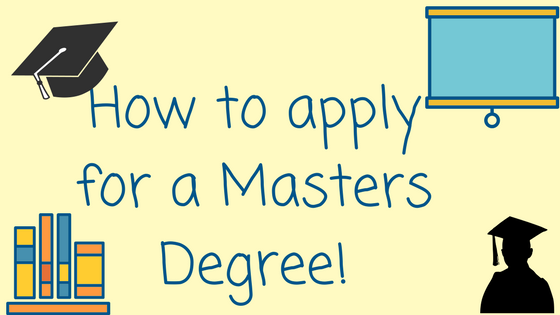A Masters degree is a step up from an undergraduate degree. A Masters degree can provide extra knowledge and depth to your undergraduate, or could be a formal requirement for a job, or could simply be a stepping stone back into education. Whatever the reason you want to apply for a Masters, there are some things to consider before applying.
First of all, applying for a Masters is different to when you applied for your undergraduate as you apply directly to your institute of choice, rather than applying to several through UCAS. That’s not to stop you applying to lots of different universities, you’ll just have to create a new application and edit your personal statement. These applications are usually done online, but can apply via post too. However, there are a couple of universities that require an application via UCAS’s UKPASS service, but you’ll have to check when you start applying.
So when should I apply? Well, most universities have continuous recruitment and have deadlines up to the week before the course start date. While this takes the pressure off third years, make sure that you don’t leave it too late as you could miss out on ‘first come first serve’ policies and bursaries. Try to have your application at least drafted by February/ March time!
Different Masters degrees will require different specifications, but for most you will have to include: a personal statement, a list of referees, and proof of your academic qualifications. Some may also ask for a portfolio or a research proposal.
Who do I ask for a reference? Well, anyone really, as long as they aren’t related to you. (You can’t ask your mum for a reference unfortunately). Since you’ll be finishing your degree, the most obvious person to ask is your tutor or lecturer. If you have a part time job, you could also ask your manager or close colleague. Make sure you check what the university you’re applying to is specifying in terms of what references they want, some universities might ask for two academic references.
The personal statement. Probably the worst bit about applying for anything, let alone a Masters degree. This is where you’ll have to talk about yourself in detail, and nearly everyone hates that. So here are some useful tips to make writing your personal statement less taxing.
- It should be between 300-500 words
- Detailed reasons as to why you’re applying for that specific degree and university
- Why you deserve a place (discuss your academic interests, any relevant work experience, what parts of the Masters course you find most appealing, what the university could get out of having you as a student)
- Your career and future goals (and how the Masters degree would help these)
- Your skillset (what your undergraduate course has taught you, what your apart-time job or life has taught you, what you learned during your dissertation, things you want the opportunity to improve upon)
- Don’t lie! But don’t be negative!
- Make sure it’s proofread by someone else, and don’t forget ensuring grammar, punctuation, spelling and layout are all correct!
Online templates can be great, but make sure you don’t copy it: the lecturers will have to read hundreds of applications and if they’ll all the same, they won’t want to accept you into their university. Be original! If you’re really struggling, check out course specific personal statements online, and always ask your university peers, lecturers and careers advisors to help.
After you’ve sent off your application, you’ll have to sit and wait. Most universities will want you to have an interview afterwards, to get to know the real you, so ensure that you prepare.
If you’re in two minds about doing a Masters and are concerned that if you send off an application, you’ll be bound to it, don’t worry. Even if you get offers back, you can turn them down if you find a job or decide to go travelling. You can even ask to defer a year and get some life experience before you go back into education. Applying for a Masters can be a great safety net if you’re not sure what to do next.
By Charlotte Brindley | Careers Ambassador | YSJ

